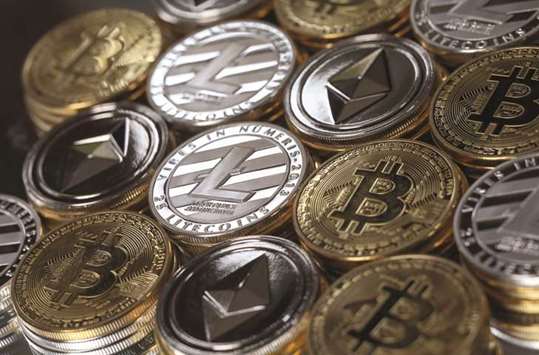The role and status of cryptocurrencies within the Islamic system of values remains a hotly disputed issue in the Muslim world. While entrepreneurs and Islamic finance startups, for example microfinance provider Blossom in Indonesia or gold-backed cryptocurrency OneGram in Dubai, readily advocate digital currencies for what they are convinced are halal transactions, and Muslim jurisdiction such as Malaysia and the UAE openly encourage the use of digital currencies and blockchain technologies to create innovations in Islamic finance, others keep thinking otherwise.
The latest escalation in the dispute was a fatwa against all cryptocurrencies issued by the Egyptian Grand Mufti Shawki Allam on January 1 who said that since trading of cryptocurrencies was similar to gambling, it was forbidden in Islam. His fatwa came after Bitcoin in mid-December in a buying frenzy soared to almost $20,000 per token but then lost one third of its value in just 24 hours, dropping below $14,000 and falling back close to $13,000 at the beginning of January in a highly volatile trading environment.
Citing Bitcoin, Allam said that any cryptocurrency was “forbidden in Shariah [law], as it causes harm to individuals, groups and institutions,” adding that such trades would carry “risks of fraudulence, lack of knowledge and cheating,” very much like gambling, which he noted was also explicitly forbidden in Islam “due to its direct responsibility in financial ruin for individuals.”
The fatwa was issued after consultations with several economic experts, he said.
In addition, Egypt’s legitimate bodies also do not consider trading a virtual currency such as Bitcoin to be acceptable. For example, the Religious Affairs Directorate of Egypt likewise deemed Bitcoin “contrary to Islamic rules,” citing that the cryptocurrency was not connected to any central authority, thus carried the risks of “forgery, disinformation and fraud” and would potentially cause harm to individuals, groups and institutions.
Other Muslim countries that have a similar stance and even declared Bitcoin and all other cryptocurrencies illegal are currently Algeria, Morocco and Bangladesh.
However, nations that play a substantial role in Islamic finance, namely Malaysia, Indonesia, UAE, Turkey and even Saudi Arabia have no problem to accept cryptocurrencies and are currently working on market regulations, even though some clerics in at least Turkey and Saudi Arabia have voiced their objections similar to Egypt’s Grand Mufti, while Indonesia’s central bank warned against “risky and excessive speculative trading.”
Remarkably, the central banks of the UAE and Saudi Arabia launched a pilot initiative in December 2017 that will see the two institutions test a new cryptocurrency for cross-border payments. This initiative, a first in the region, will allow transactions only between banks and not allow for trading by individuals, though, by deploying blockchain technology for faster and more efficient transactions, according to Mubarak Rashid al-Mansouri, the UAE central bank’s governor.
Other countries in the region have not declared at all yet if they will examine whether cryptocurrencies are halal or not. This has to do with the fact that they are such a relatively new topic that not much had been released on it from Islamic scholars in most Muslim countries, and there is no joint official position yet by large Islamic finance organisations.
On the contrary, the UAE has already got a Bitcoin exchange by the name of BitOasis which also offers its services, including a Bitcoin wallet, in Qatar, Kuwait, Bahrain and Saudi Arabia.
In Qatar, Commercial Bank announced last year it was testing a blockchain prototype designed for international remittances in cooperation with banks in Oman and Turkey. The project aims to establish digital payment corridors across the Middle East and also to the Philippines.
In Iran, Masoud Khatouni, the deputy director for information technology and communication networks at Bank Melli Iran, the largest and most influential bank in the country, recently expressed his favour for cryptocurrencies. According to him, Iran could benefit from digital currencies particularly in times of economic sanctions. He stressed that there should be “no limitations” on the use of digital currencies and urged the Iranian central bank to “formally recognise activities using digital currencies as they are currently shaping the future of banking, and banks themselves must also enter this field to use them.”
In Dubai, OneGram was the first company to set up what it called a Shariah-compliant cryptocurrency called OneGramCoin in June last year and currently runs an Initial Coin Offering. In a white paper on its website, the firm asserts that OneGramCoin was fully Shariah-compliant because it was backed by gold and thus had intrinsic value.
“Because in Islamic finance there needs to be an underlying asset, we made one gram of gold the reference for one token of OneGramCoin,” Mohammad Ibraheem Khan, OneGram co-founder and CEO, said, adding that this would make the structure of his cryptocurrency Shariah-compliant because the gold physically existed and the minimum exit price of OneGramCoin tokens thus was the market price of gold. Additionally, OneGramCoin also seeks to meet the wealth sharing obligations of Islamic finance by giving 2.5% of all profits to the One Gram Foundation, a UK-registered charity. The company also has Shariah advisers that help with trust building.
And in a latest development and a first-of-its-kind in the region, a Dubai property developer, MAG Lifestyle Development, announced it was ready to accept payments in Islamic cryptocurrencies, including OneGramCoin, for units in all of its eight current projects and even entices “digital” buyers with a 5%-discount. MAG is the second developer in Dubai which accepts cryptocurrencies after the Aston Plaza and Residences development at Dubai Science Park began offering off-plan units for Bitcoins back in September 2017.

A collection of bitcoin, litecoin and ethereum tokens sit in this arranged photograph in Danbury, UK. The role and status of cryptocurrencies within the Islamic system of values remains a hotly disputed issue in the Muslim world.


